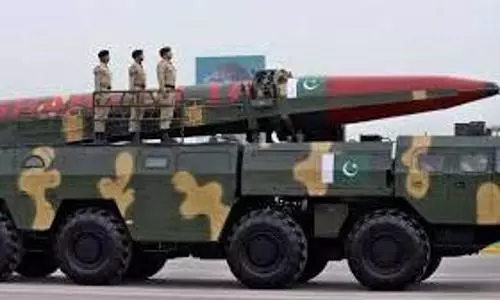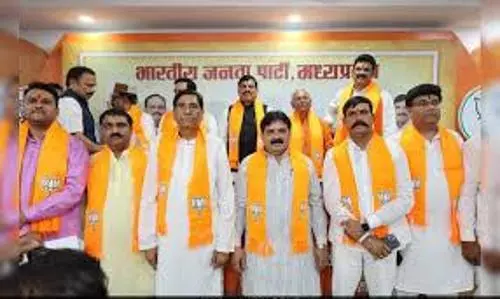
UP elections draw national attention
text_fieldsWhen the Election Commission earlier this month announced the Assembly election dates for UP, Goa, Uttarakhand, Punjab, and Manipur, political analysts had considered the polls as a referendum on the Modi government in the Centre.
However, the newly developed uncertainty in the Uttar Pradesh politics following the internal feud in the Samajwadi Party has reshaped the entire political scenario in the State. With Chief Minister Akhilesh Yadav emerging as a winner in the legal fights with his father Mulayam Singh Yadav to gain authority over the party, the SP has become a more powerful contender in the high-stakes elections. What is now expected to happen in UP is a Bihar model experiment, where a powerful alliance of Nitish Kumar, Lalu Prasad Yadav and the Congress successfully prevented the BJP from coming to power. Akhilesh proved that he is the son of the ‘godfather Netaji’ by gaining the license to use the party name and the symbol by proving before the Election Commission his influence over the party and governance. What makes the secular forces happy is that he came forward to form a grand political alliance to thwart the BJP’s prospects in the State. The previous experiences were of the Hindutwa politics establishing supremacy as the SP, BSP, and the Congress fought with each other scattering the minority votes. Conversely, the new move in UP to amass the Dalit-minority votes under a single umbrella is obviously a relief to the citizens who are traumatized by seeing the devilish face of the Hindutwa politics in the country.
The fresh developments in UP have dismissed the earlier speculations that the fight in the elections, to be held in seven phases between 11 February and 8 March, will in fact be between Narendra Modi’s BJP and the BSP of Mayawati. It is a good sign that the Congress came forward to ally with the SP and Akhilesh welcomed that move. Moreover, discussions are taking place over forming a grand alliance by joining hands with Rashtriya Lok Dal and other parties. The BSP and the BJP might be seeing the move with cautiousness. Another aspect is that the political analysts and those know Mulayam Singh Yadav properly are sure that he would not attempt a ‘political suicide’ by fighting on his own in the elections. They think that Mulayam knows that creating a hindrance before the grand secular alliance led by Akhilesh will only lead to personal losses. Netaji therefore might choose a path of conciliation and discussions in that regard are already on. People are amused over such media reports. At the same time, Akhilesh and the Congress leadership have the responsibility to not sabotage the attempts to form an alliance by messing up with the seat-sharing talks. The factor that will determine Akhilesh’s political future will be his proficiency in avoiding a crack in the secular votes by bringing more parties into the alliance. He will have to take out well-planned tactics to show a performance strong enough to overcome the anti-government sentiments of the people.
It’s difficult to predict the political future of UP by looking at the results of previous Assembly-Lok Sabha elections alone. The vote percentage of the Samajwadi Party that won 224 seats out of total 403 seats in 2012 was just 29.51. Mayawati’s BSP that pocketed 25.91 per cent votes could only win 80 seats. At the same time, the BJP that won 71 of total 80 seats in the last Lok Sabha elections was able to garner 42.63 per cent of the total votes in the State. That was made possible by overcoming the caste-subcaste dividers and amalgamating Hindu votes in its favour. However, the Sangh Parivar leadership is quite sure that it cannot repeat the performance in the Assembly elections.
The Congress had created history by winning 83 of the 85 Lok Sabha seats in UP in the elections held post the murder of Indira Gandhi in 1984. However, that party has never displayed a notable performance after that in the State. That reality must be the reason that prompted Rahul Gandhi to go for an alliance with Akhilesh. The weakness of the BJP in UP is that it does not have a suitable ‘figure’ to project in the State. In addition, the fact that the minorities that constitute around 20 percent of the State population would back any alliance powerful enough to check the Modi-wave might favour Akhilesh again.























